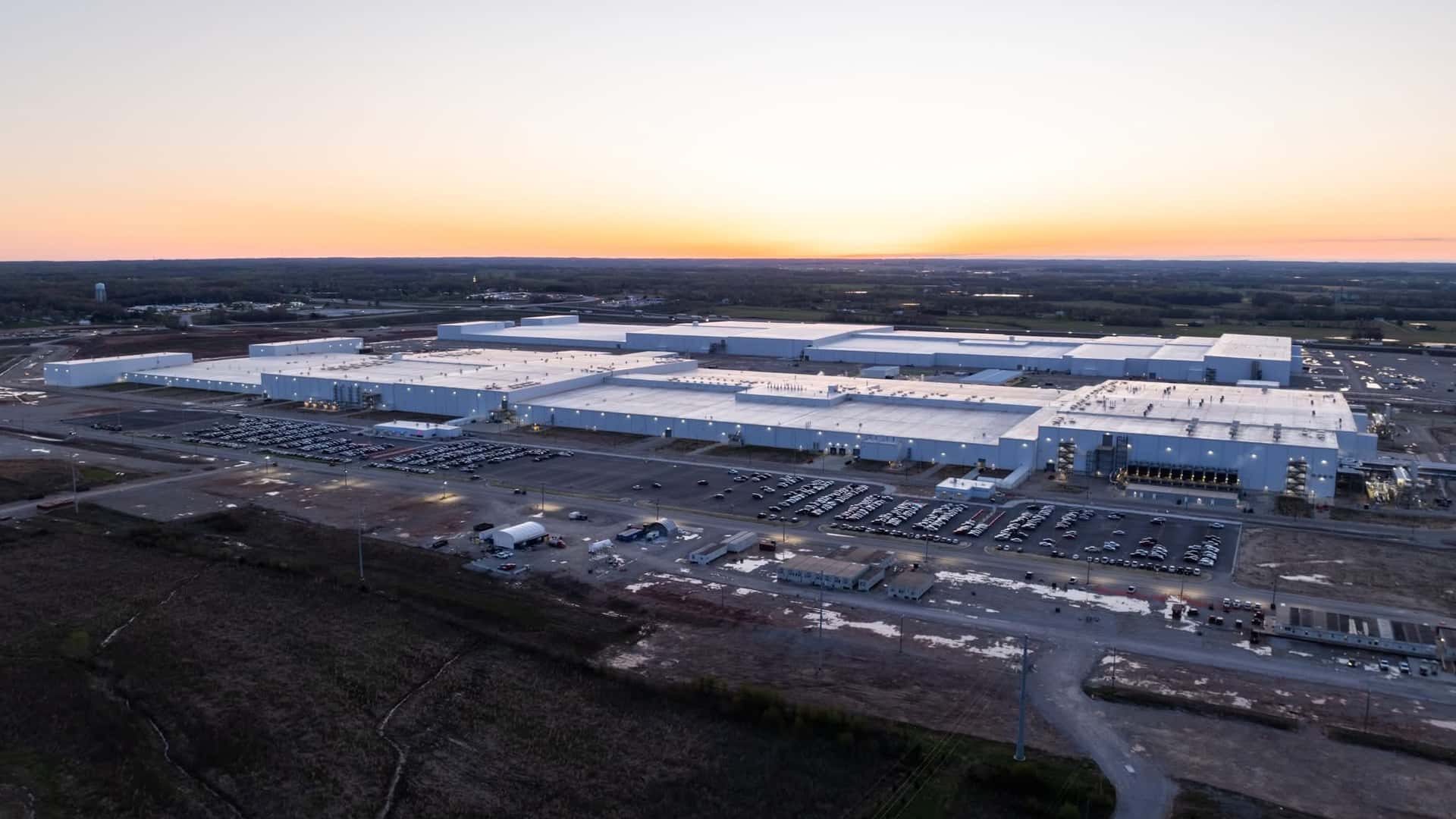Key Takeaways
- Ford and SK On launched battery production in Kentucky for EVs, including the F-150 Lightning and E-Transit.
- The new $5.8 billion facility employs 1,450 workers and could expand to 5,000 as production ramps up.
- Despite declining EV sales, Ford plans to adopt cheaper LFP battery technology and develop a new electric truck by 2027.
Ford Launches EV Battery Production in Kentucky
Ford’s joint venture with South Korean battery maker SK On officially began production of EV batteries on Tuesday at a facility in Glendale, Kentucky. This plant will focus on manufacturing high-nickel battery packs, specifically nickel manganese cobalt (NMC), for Ford’s popular electric models—the F-150 Lightning pickup truck and the E-Transit van.
The BlueOval SK facility represents a substantial investment of $5.8 billion and currently employs around 1,450 workers, with the potential to expand to 5,000 jobs as production increases. The site has benefitted from the Biden administration’s climate initiatives, particularly the Inflation Reduction Act (IRA), which aims to bolster domestic EV production. In December 2024, the U.S. Department of Energy awarded BlueOval SK a historic $9.3 billion loan to support the construction of three battery plants, including two in Kentucky and one in Tennessee. These projects are expected to create 5,000 construction jobs and an estimated 7,500 operational positions.
Despite these strong investments, Ford is facing challenges in the EV market. The company reported a notable decline in sales for the first half of the year: deliveries of the F-150 Lightning fell nearly 17% to 13,029 units, E-Transit sales dropped 34% to 4,174, and Mustang Mach-E sales decreased by 2% to 21,785. These declines reflect not only a cooling demand for EVs but also increasing competition in the market; General Motors now claims to be the leading battery producer in the U.S., supplying batteries for almost a dozen different models.
In response to these challenges, Ford remains committed to its electrification strategy. Next year, the company plans to start producing more affordable lithium iron phosphate (LFP) battery cells at its BlueOval Battery Park in Michigan, utilizing technology licensed from China’s CATL. Ford CEO Jim Farley recently highlighted the company’s commitment to innovation, describing the upcoming developments as akin to a “Model T moment” for the electric vehicle industry.
To accommodate this shift, Ford will also cease production of the Escape and Lincoln Corsair crossovers to retool its Louisville Assembly Plant for a next-generation electric truck slated for release in 2027. This new vehicle is expected to carry a starting price of around $30,000 and will utilize a new Universal EV Platform, along with a radically different manufacturing process.
Overall, while Ford’s current EV sales are struggling, the company is taking decisive steps to secure its future in the electrification market through substantial investments and innovative technology developments.
The content above is a summary. For more details, see the source article.















